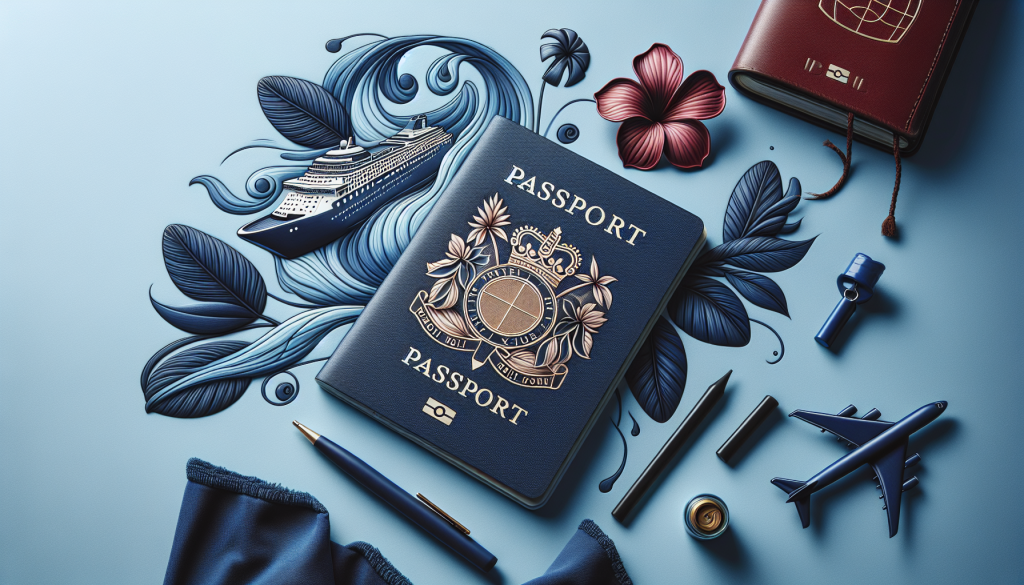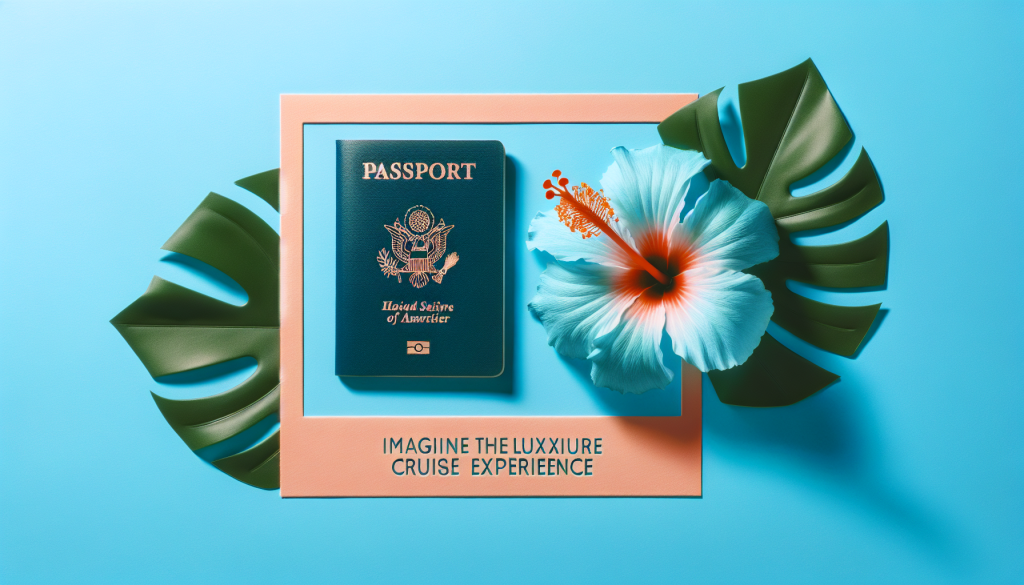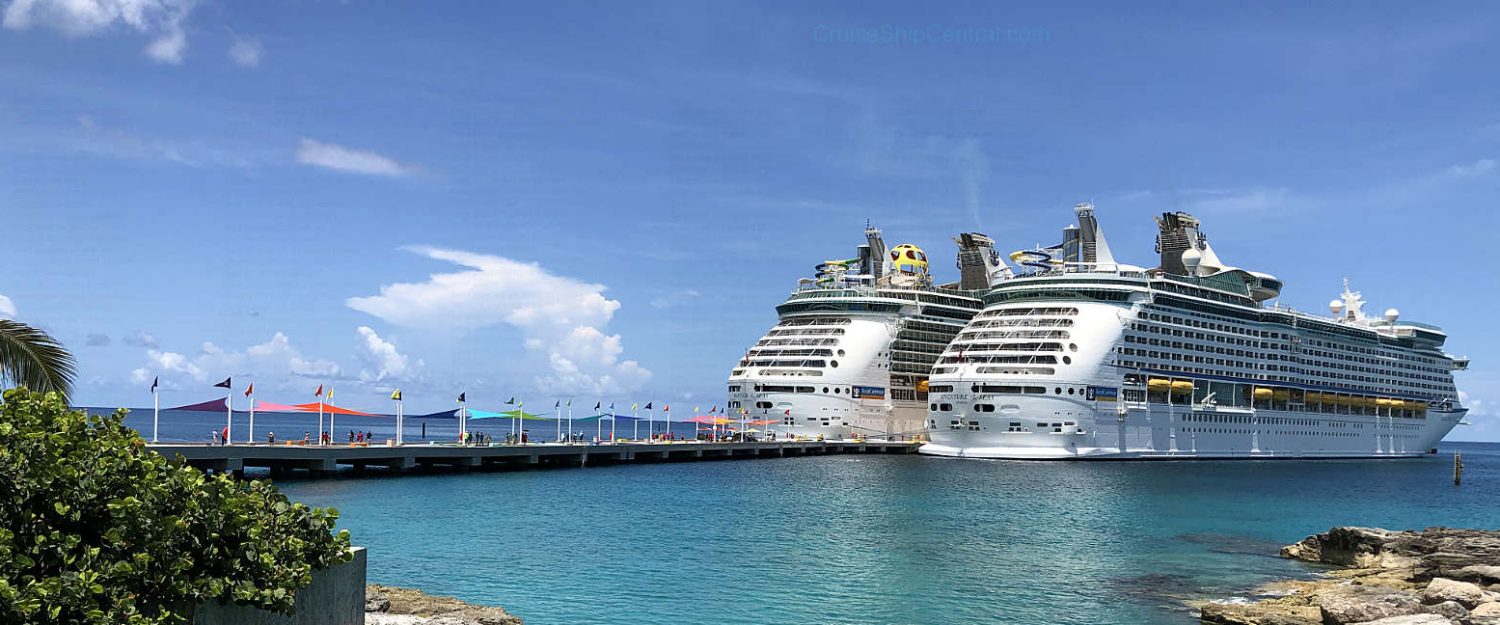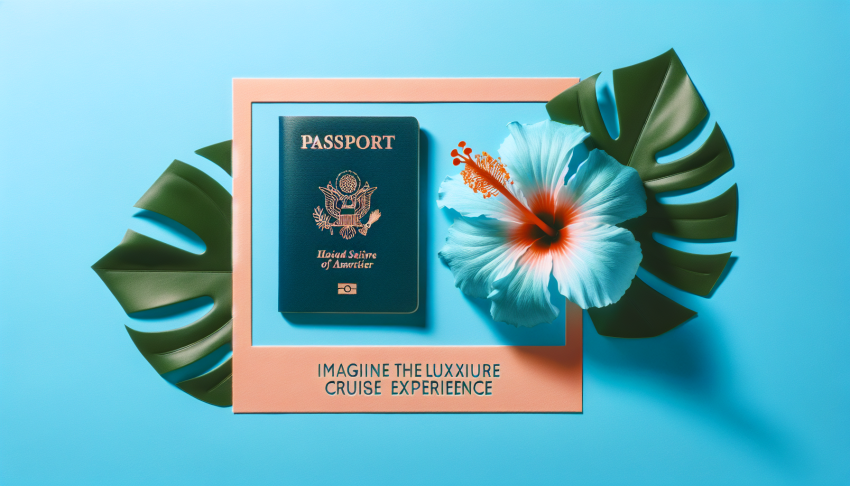Hi! Planning an exciting cruise vacation? Wondering what documents you need to get on board? Look no further, because in this article, I’ll be sharing all the essential information about the required documents for a cruise. From proof of identity to any additional paperwork, I’ve got you covered! So, let’s set sail on this informative journey and make sure you have everything you need to enjoy your time at sea.
Passport and Identification Documents

Passport
A passport is an essential document that is required for international travel, including cruises. It serves as your primary form of identification and proof of citizenship. When planning a cruise, it is important to ensure that your passport is valid for at least six months beyond your intended departure date. This is a common requirement among many countries and ensures that you have sufficient time to travel and return without any issues. It is recommended to check the expiration date of your passport well in advance and renew it if necessary.
Driver’s License
Although a driver’s license is primarily used for domestic travel, it can serve as an additional form of identification during a cruise. While it may not be a mandatory requirement, it is always a good idea to carry your driver’s license with you, especially if you plan to rent a car or participate in any land-based activities during your cruise. Additionally, having a driver’s license can provide an extra level of comfort and identification verification if needed.
National Identity Card
Depending on your country of origin, a national identity card can also be used as a valid form of identification during a cruise. It is essential to check the specific requirements of the cruise line and the countries you will be visiting to determine if a national identity card is accepted. Some countries may only recognize passports as an acceptable form of identification, so it is crucial to be well-informed before your trip.
Visa and Travel Authorization
Visas
Visas are often a necessary requirement for entry into certain countries. If your cruise itinerary includes ports of call in countries that require visas, it is crucial to obtain the appropriate visas before your trip. The visa application process varies depending on the country and can involve providing supporting documents, such as proof of accommodation, financial stability, and a confirmed return ticket. It is advisable to research the visa requirements of each destination and initiate the application process well in advance to ensure a smooth and hassle-free experience.
ESTA
The Electronic System for Travel Authorization (ESTA) is a travel authorization program that allows citizens of certain countries to visit the United States for short periods without obtaining a visa. It is applicable for travelers entering the United States by air or sea, including those embarking on a cruise. ESTA applications must be submitted online, and the approval is generally granted within minutes. However, it is recommended to apply for ESTA as early as possible in case any issues arise. It is important to note that not all nationalities are eligible for ESTA, and travelers from ineligible countries must obtain a visa.
eTA
Similar to the ESTA, the Electronic Travel Authorization (eTA) is a travel requirement for visa-exempt foreign nationals who are flying to or transiting through Canada. If your cruise involves stops in Canadian ports, it is essential to determine whether you need an eTA. The application process is done online, and approval is generally obtained quickly. It is important to note that having a valid eTA does not guarantee entry into Canada, as border officials will make the final decision based on their assessment.
Proof of Citizenship
Birth Certificate
A birth certificate is a vital document that serves as proof of citizenship. It is typically required when applying for a passport and can also be useful during the check-in process for a cruise. While a birth certificate alone may not be sufficient for international travel, it is still a valuable piece of identification that can be used in conjunction with a passport or other forms of identification. It is advisable to carry a certified copy of your birth certificate or an original document, depending on the requirements of the cruise line and the ports of call.
Naturalization Certificate
For individuals who have obtained citizenship through naturalization, a naturalization certificate is a crucial document to have for a cruise. This document serves as proof of citizenship and is often required when applying for a passport. It is essential to bring your original naturalization certificate or a certified copy during your travels, as it may be requested by customs and immigration officials or other authorities in the countries you visit.
Travel Insurance
Insurance Policy
Travel insurance is an integral part of any trip, including a cruise. It provides coverage for unforeseen circumstances, such as trip cancellation, medical emergencies, lost luggage, and more. It is essential to choose a comprehensive travel insurance policy that meets your specific needs and covers the duration of your cruise. Prior to purchasing a policy, carefully review the coverage details, including any exclusions and limitations, to ensure that you have adequate protection during your trip.
Emergency Contacts
In addition to having travel insurance, it is important to have a list of emergency contacts readily available. This includes contact information for your travel insurance provider, the nearest embassy or consulate of your home country, and any emergency assistance helplines provided by the cruise line. It is wise to keep a copy of these emergency contacts in both digital and physical formats to ensure access in case of any unforeseen circumstances or emergencies.
Medical Information

Prescription Medications
If you take any prescription medications, it is crucial to bring an ample supply for the duration of your cruise, along with a copy of your prescription. It is advisable to carry medications in their original packaging, clearly labeled with your name and dosage instructions. It is also helpful to have a written record of the generic and brand names of your medications, as well as the contact information of your prescribing physician. This ensures that you can safely and easily manage your medical needs while on board the cruise ship or during land-based excursions.
Medical History
Providing relevant medical information can be essential in the event of a medical emergency during a cruise. Having a summary of your medical history, including any pre-existing conditions, allergies, and surgical procedures, is prudent. It is advisable to carry a written document or electronic copy of this information, which can help medical professionals assess your needs more effectively. Additionally, if you require any special dietary considerations or assistance, notifying the cruise line in advance can ensure a more enjoyable and comfortable experience.
Cruise Tickets and Reservation Confirmation
Cruise Tickets
Cruise tickets are your entry pass to an unforgettable vacation experience. These tickets typically contain vital information, including your name, cabin assignment, embarkation and disembarkation dates, and details of the cruise itinerary. It is crucial to review your cruise tickets upon receipt and ensure that all the information is accurate. In case of any discrepancies, it is recommended to contact the cruise line immediately. Keeping your cruise tickets in a safe place, such as a travel document organizer or a locked bag, is advisable to avoid misplacement during your journey.
Reservation Confirmation
Apart from cruise tickets, it is essential to have your reservation confirmation readily available during your cruise. This confirmation typically includes details of your booking, such as cabin category, payment information, and any special requests or preferences. It is advisable to keep both a digital and a physical copy of your reservation confirmation, as it may be required for various purposes, including check-in procedures, onboard activities, and shore excursions. Having this confirmation easily accessible saves time and ensures a smooth transition during your cruise.
Credit Cards and Payment Documents
Credit Cards
Credit cards are a convenient and widely accepted form of payment during a cruise. They offer a secure way to handle onboard expenses, such as dining, shopping, and optional activities. It is advisable to bring at least one major credit card with you, as well as notifying your credit card provider about your travel plans to avoid any unexpected security blocks. Carry your credit cards in a safe and secure place, and make copies of the front and back of your cards in case of loss or theft.
Debit Cards
While credit cards are commonly used for onboard expenses, debit cards can also be used for transactions during a cruise. However, it is important to be aware of any international transaction fees and daily withdrawal limits imposed by your bank. Informing your bank about your travel plans, including the countries you will be visiting, can help avoid any potential issues with your debit card. Having multiple payment options, such as credit and debit cards, provides flexibility and peace of mind during your cruise.
Cash
Carrying a moderate amount of cash can be useful during a cruise, especially for small purchases or when visiting locations that may not accept credit or debit cards. It is advisable to have a mix of small and larger denomination bills in the local currency of the countries you will be visiting. However, it is important to exercise caution and keep cash securely stored, either on your person or in a safe provided by the cruise ship. Additionally, it may be beneficial to research the exchange rates and currency requirements of the countries you will be visiting to ensure you have the appropriate amount of cash on hand.
Minors and Children Documents
Child’s Passport
Just like adults, children also require a passport to travel internationally, including on a cruise. It is crucial to ensure that your child’s passport is valid for the entirety of your trip. Additionally, some countries may have specific requirements, such as additional documentation or consent forms, when traveling with a minor. It is vital to ensure that you have all the necessary documents before embarking on your cruise to prevent any complications or delays.
Parental Consent Letter
In situations where a child is traveling with only one parent or a guardian, a parental consent letter may be required. This letter states that the child has permission to travel with the accompanying adult and may be requested by immigration officials or the cruise line. The letter should include pertinent information, such as the child’s full name, the accompanying adult’s details, travel dates, and contact information. It is recommended to carry a notarized copy of the consent letter to avoid any potential issues during your cruise.
Marriage and Divorce Documents
Marriage Certificate
If you are newly married and have changed your name, carrying a copy of your marriage certificate can be helpful during your cruise. Some travel providers may require a marriage certificate as proof of the name change if the name on your travel documents does not match your current legal name. Having a copy of your marriage certificate ensures a smooth check-in process and avoids any confusion or delays.
Divorce Decree
For individuals who have gone through a divorce and reverted to their maiden name or changed their name back to a previous one, having a copy of the divorce decree can be beneficial. This document serves as evidence of the name change and can be presented if there are any discrepancies between the name on your travel documents and your current legal name. Carrying a copy of the divorce decree helps facilitate hassle-free travel and prevents any potential issues during your cruise.
Customs and Immigration Documents
Declaration Forms
Declaration forms are typically provided by the cruise line or immigration authorities and require passengers to declare any goods or items subject to customs regulations. These forms usually cover details such as alcohol, tobacco, cash, and items exceeding duty-free limits. It is important to carefully read and complete the declaration forms truthfully and accurately. Familiarize yourself with the customs regulations of the countries you will be visiting to ensure compliance and avoid any penalties or complications during your cruise.
Customs Documents
In addition to declaration forms, there may be additional customs documents required during your cruise. These documents can vary depending on the ports of call and the specific regulations enforced by each country. It is advisable to consult with the cruise line or research the customs requirements of each destination in advance to ensure that you have the necessary documentation prepared. Being well-informed and organized with your customs documents ensures a seamless and stress-free experience during your cruise.
In summary, embarking on a cruise requires careful preparation and consideration of various documents. From valid passports and identification documents to travel insurance and payment methods, having the necessary paperwork in order can help ensure a smooth and enjoyable cruise experience. Remember to research the requirements of each country you will be visiting and check with the cruise line for any specific documentation needed. By being proactive and organized with your paperwork, you can embark on your cruise adventure confidently and worry-free.

